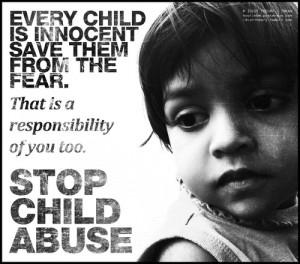 In a landmark move, the Lok Sabha, Parliament’s lower house, Tuesday
passed the Protection of Children from Sexual Offences Bill 2011 — a
move experts say could go a long way in combating the widespread problem
of the sexual abuse of children.
In a landmark move, the Lok Sabha, Parliament’s lower house, Tuesday
passed the Protection of Children from Sexual Offences Bill 2011 — a
move experts say could go a long way in combating the widespread problem
of the sexual abuse of children.
The bill was passed by the Rajya Sabha, Parliament’s upper house, earlier this month and now requires the President’s nod to become law. It was drafted with a view to strengthening the legal provisions for protecting children from sexual abuse and exploitation.
Bureaucrats first drew up this bill in 2005. Even now, the legislation was passed at the last minute by a voice vote on the last day of the budget session of Parliament.
Until now, India hasn’t had a specific law to protect children from sexual offenses, despite being a signatory to the United Nations Convention on the Rights of the Child since 1992. Although sexual offences are covered under various sections of the Indian Penal Code, the law currently doesn’t distinguish between adult and child victims.
Sanjay Acharya, a member of Plan India, an organization working for underprivileged children, noted that it was “shameful” that the world’s largest democracy didn’t have an existing framework to address child sexual abuse, adding that the law “was long overdue.”
Many activists welcomed passage of the new law, saying it is a major step forward in fighting child sexual abuse. Among its strengths, they say, the law would set up special courts for the speedy trial of such cases and provide punishment of up to life imprisonment for the offenders.
“It is a very important landmark,” said Nishit Kumar, a spokesman for Childline, a toll-free helpline for street children in distress. “It defines sexual abuse in great detail as well as defines the procedures” by which it is to be tackled by law.
The legislation also provides for child-friendly measures, the Ministry of Women and Child Development said in a statement, such as in-camera recording of trials, recording the statement of the child involved with the assistance of an interpreter, and prohibiting the detention of a child victim at a police station at night.
In the case of “heinous offences” of penetrative sexual assault, the statement said that the burden of proof will lie on the accused because of the vulnerability of children.
Child sexual abuse has become a high-profile issue of late. Bollywood actor Aamir Khan’s television show “Satyamev Jayate” dealt with cases in a recent episode. On his show, he urged the government to take notice of the problem. Reacting to the news of the legislation, Mr. Khan said on Twitter: “Hey guys, great news! The Lok Sabha has passed the Protection of Children Against Sexual Offences Bill today!!! Unbelievable!!! Super News!”
Still, some concerns remain.
“Unless the government does not encourage sex education or personal safety workshops in schools, the bill in itself would do little to address the deep-rooted” problem of child sexual abuse, explained Smriti Kaul, who heads child-rights non-profit Koshishh.
According to a 2007 study on child abuse by the Ministry of Women and Child Development, over half of the children surveyed reported having “faced one or more forms of sexual abuse.”
Ms. Kaul also noted that the law “is extremely ambiguous on child pornography.” She said, for instance, that it doesn’t specify whether filming, distributing, participating or possessing child pornography is a criminal offense.
Ranjana Kumari, head of non-profit Center For Social Research, said the law “doesn’t take into account social reality,” referring to criminalizing consensual sex between two persons both under 18 years of age.
Under the provisions of the bill, any sexual activity, with children under 18 years of age or between two minors, even if consensual, would be considered rape and subject to prosecution. This raises the age limit from 16. This provision had earlier irked activists, who said this might lead to misuse of the law.
